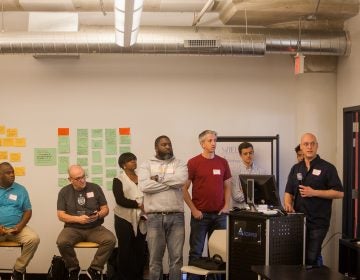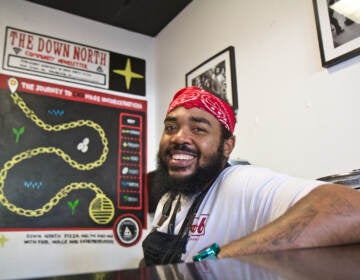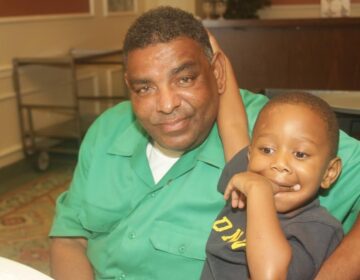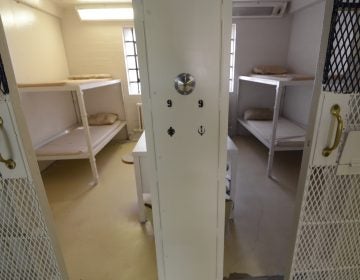The Reentry Project: Stories and solutions from the formerly incarcerated
The forum focused on those who have served their time and now struggle to find their place in the community.
-
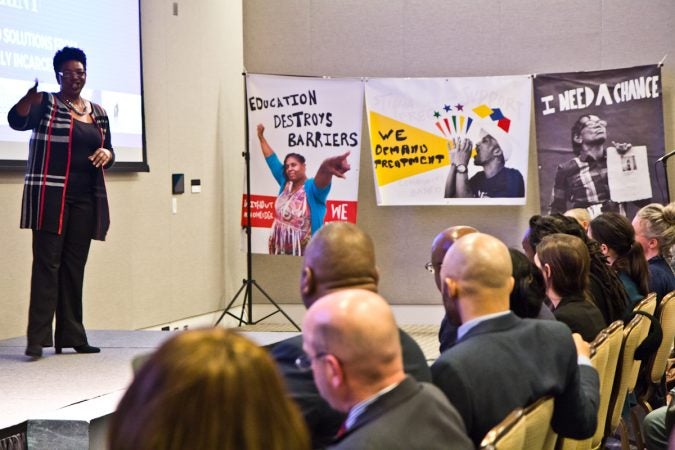
DeAnna Hoskins is the Senior Policy Advisor Advisor for the DOJ’s Bureau of Justice Assistance division. (Kimberly Paynter/WHYY)
-
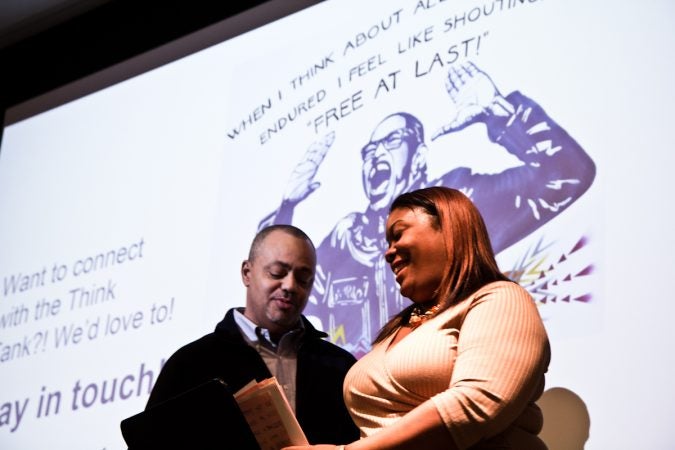
Hiram Adams and Deanna Bell from the Reentry Think Tank share their story at The Reentry Blueprint event. (Kimberly Paynter/WHYY)
-
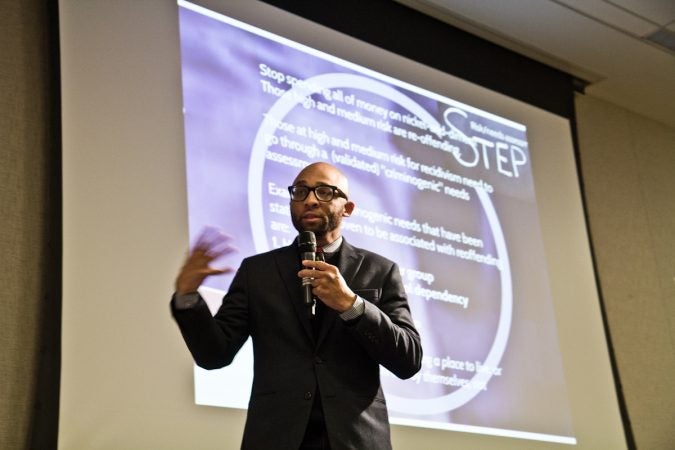
Louis Reed presents evidence based practices to reduce recidivism. (Kimberly Paynter/WHYY)
-
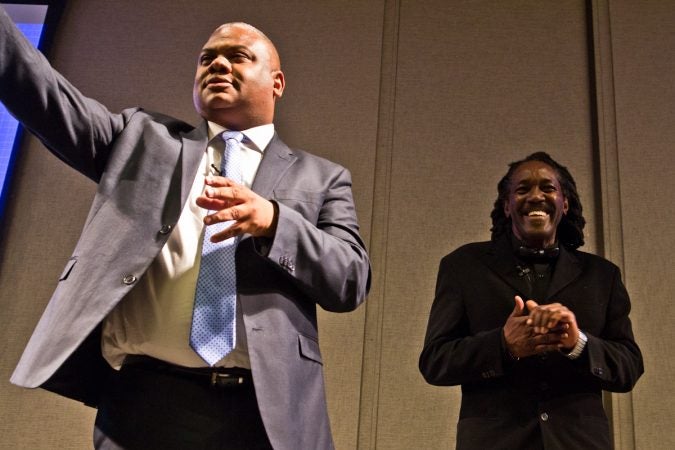
Ruben Jones and Jondhi Harrel run The Center for Returning Citizens. (Kimberly Paynter/WHYY)
-
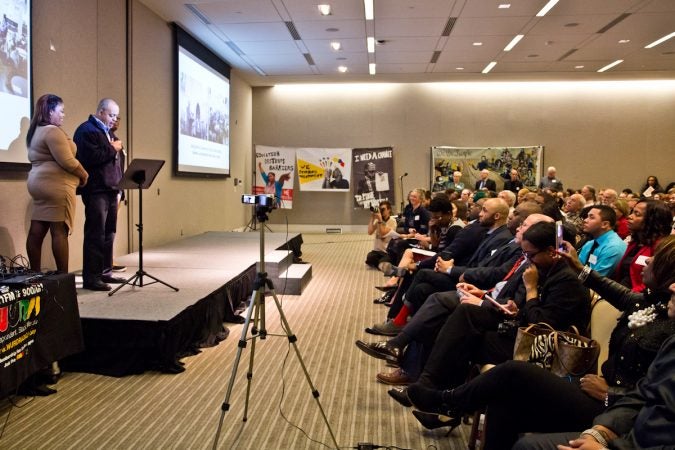
Hiram Adams and Deanna Bell from the Reentry Think Tank share their story at The Reentry Blueprint event. (Kimberly Paynter/WHYY)
-
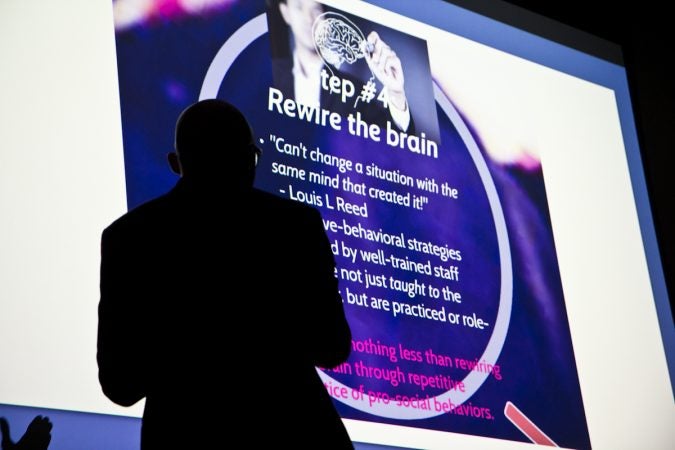
Louis Reed presents evidence based practices to reduce recidivism. (Kimberly Paynter/WHYY)
Culminating a year-long reporting collaboration, Wednesday night, The Reentry Project, Frontline Dads and The Center for Returning Citizens held a forum to discuss strategies for improving the system for people coming back to society after time in jail or prison.
Jeffrey Abramowitz had a career as a trial lawyer before spending five years in prison. He says it was tough, but finding work in Philadelphia labeled as a felon was harder.
“What are you going to put on your resume?” asked Abramowitz. “More importantly, that elephant in the room, what do you say when you go in a job interview when someone says ‘Man, mister, where you’ve been for the last five years?’”
The forum focused on those who have served their time and now struggle to find their place in the community. (Click on the video player below to replay the event)
Michelle Alexander, civil rights lawyer and author of the book “The New Jim Crow,” applauded the effort via video. “It is way past time for gatherings like this and I couldn’t be more thrilled that the Center for Returning Citizens and formerly incarcerated people in this country are finally demanding their voices be heard,” said Alexander.
More than 2 million people in the U.S. are incarcerated. Among the top concerns of the panel is keeping those people from returning once released. Louis L. Reed, who spent 13 years in prison, says it’s not just the lack of job opportunities — services for returning citizens should also take into account their social lives.
“Peer group is the number one leading factor as to whether or not someone will re-offend. My grandmother used to say ‘show me who your friends are and ill tell you what you’re doing,’” said Reed.
Hiram Adams with the Reentry Think Tank wants policymakers to use the experiences of the formerly incarcerated to create strategies for re-integration. But he says that will mean overcoming longstanding discrimination.
“No one knows or seems to care what traumas or stressors may have lead to an individual doing what they may have done. But our artwork exhibits and personal stories help to transform the stigma we face,” said Adams.
This year, the Reentry think tank developed a Reentry Bill of Rights and a Resume of Freedom to help returning citizens and their lawyers best represent their individual needs.
—
WHYY is one of 15 news organizations in the Philadelphia Reentry Reporting Collaborative, a solutions-oriented focus on the issues facing formerly incarcerated Philadelphians. The aim is to produce journalism that speaks, across the city and across media platforms, to the challenges and solutions for reentry.
WHYY is your source for fact-based, in-depth journalism and information. As a nonprofit organization, we rely on financial support from readers like you. Please give today.


